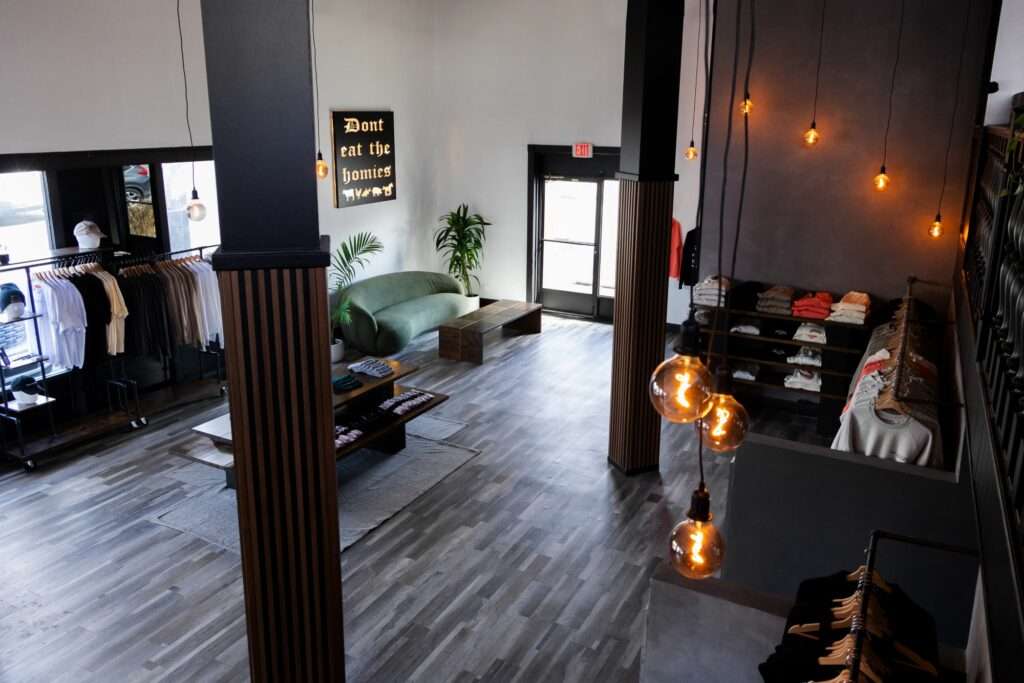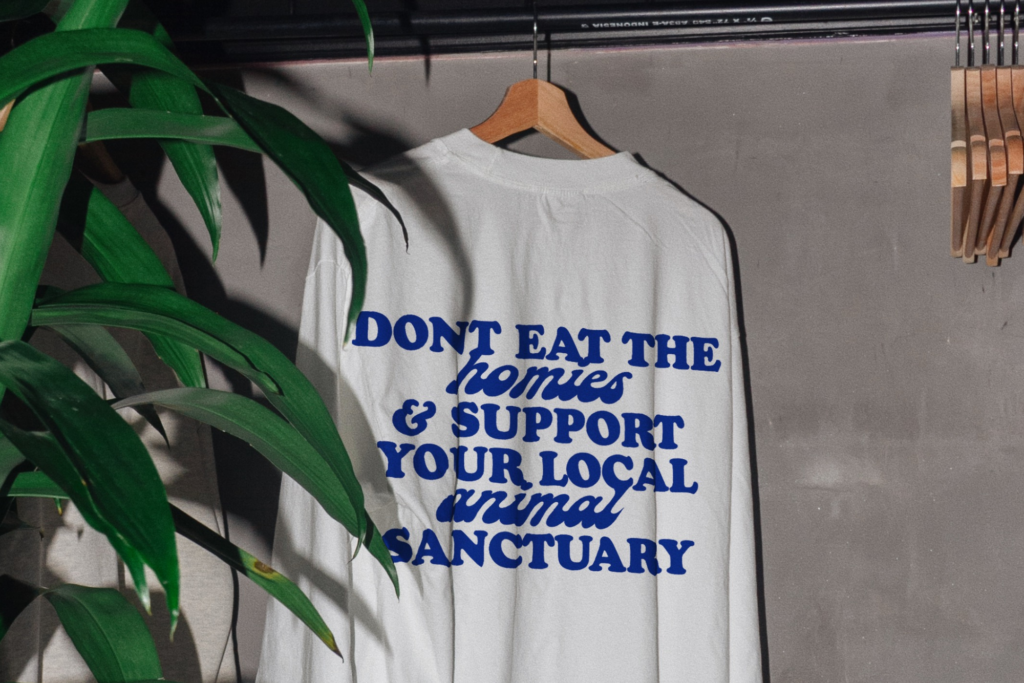D.E.T.H. isn’t your average clothing brand.
From its sustainable practices to its mission of making the world a better place for animals — Dont Eat The Homies is defying fashion industry norms.
Just take the name, for example. The Los Angeles-based brand’s founder, Jordyn Weekly, purposely omitted proper punctuation to emphasize the company’s rebellious nature.
“We strive to be a disruptive force for good,” she tells Ethos. “Our mission is centered around saving animals, but it also offers a glimpse into how sustainable living can shape our lives for the better. We’re rebelling against societal norms and paving the way for a brighter future.”

Founded in 2018, the company carries an array of comfy apparel, from tops and bottoms to hoodies and t-shirts. The brand also has a range of activewear that includes leggings, bra tops, shorts, and yoga tops.
The company’s mission-based approach is a far cry away from the apparel industry’s profit-first mentality. Featuring signature branding — a cow, chicken, fish, pig, and horse, which are representative of animals that are commonly exploited and commoditized by the animal agriculture industry — the company donates ten percent of all sales to animal sanctuaries in need.
D.E.T.H. also uses recycled and organic materials whenever possible to create its garments. “Our focus on veganism and sustainability is, ultimately, an effort to revolutionize the way our world looks at animal protection and create a positive change through sustainable living practices,” Weekly says.
Bringing D.E.T.H. to life
From shipping out orders from her garage to occupying a small warehouse, Weekly also celebrated an important milestone for the company last spring. On March 30th, she hosted the grand opening of D.E.T.H.’s first brick-and-mortar store, located in Woodland Hills, California.
“Today marks the start of a new journey, one we have yet to fully figure out,” the brand revealed in an Instagram reel announcing the new store. “But we could not be more thrilled to be here.”

Growing up in a family of hunters in the small town of Albany in rural Oregon, it’s safe to say that starting a vegan clothing line wasn’t originally in the cards for Weekly.
“D.E.T.H. started by complete accident,” she says. “One night, in 2018, I was watching a very sad documentary about the animal agriculture industry. I couldn’t sleep after because I had this feeling of helplessness.”
Weekly, who went vegan back in 2015, didn’t feel like she was doing enough to help end the suffering of animals. “I’ve never been very confrontational, and I hate the thought of debating people in general. However, I realized that I could do something else,” she explains.
And do something else she did. She created a hoodie with the phrase “Don’t Eat The Homies” on the back to inspire others to make more compassionate food choices.
“People started asking me where they could get one, and it grew from there,” she says. “It didn’t become a full-blown business until 2020 when I started running ads for the first time.”
Putting the planet over profit
Unlike many other clothing brands that churn out fast fashion pieces at the expense of the environment, D.E.T.H. prioritizes sustainability at every turn.
In addition to using recycled and organic materials, the company eschews plastic packaging. “We manufacture part of our garments in-house, which nearly erases product waste and reduces the number of shipments sent out from the warehouse, thus minimizing carbon emissions associated with transportation costs,” Weekly explains.

According to the World Economic Forum, the fashion industry is the world’s third-largest polluter, emitting ten percent of all global greenhouse gas emissions each year. This equates to about 1.2 billion tons of carbon dioxide emissions.
To make an even bigger environmental impact, D.E.T.H. is currently exploring the use of more sustainable, plant-based fabrics, including cactus, apple, and mushroom leather.
Knowing that the clothing people wear is a reflection of their own values, Weekly hopes her streetwear line will inspire others to make more impactful fashion choices — one sustainable statement hoodie at a time.
To learn more about D.E.T.H., follow the brand on Instagram or visit DontEatTheHomies.com.
Related on Ethos:


